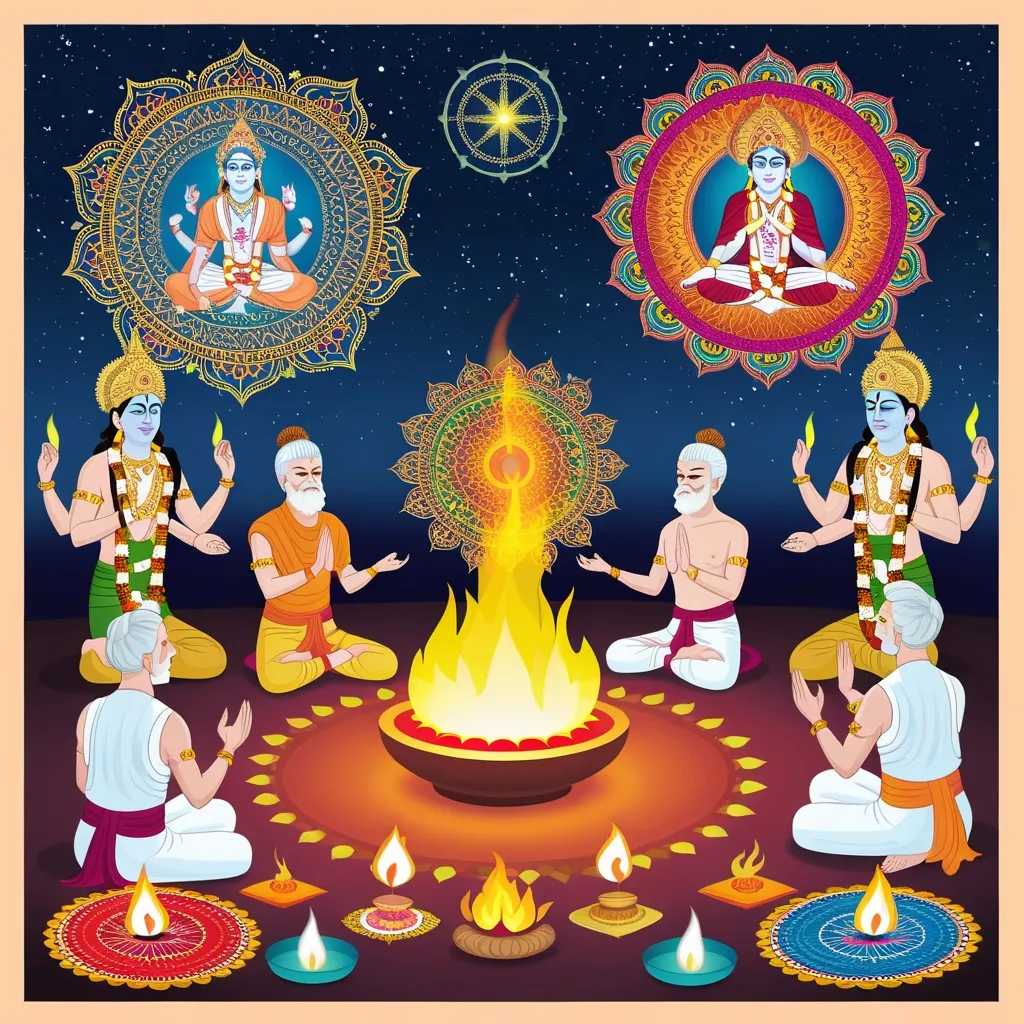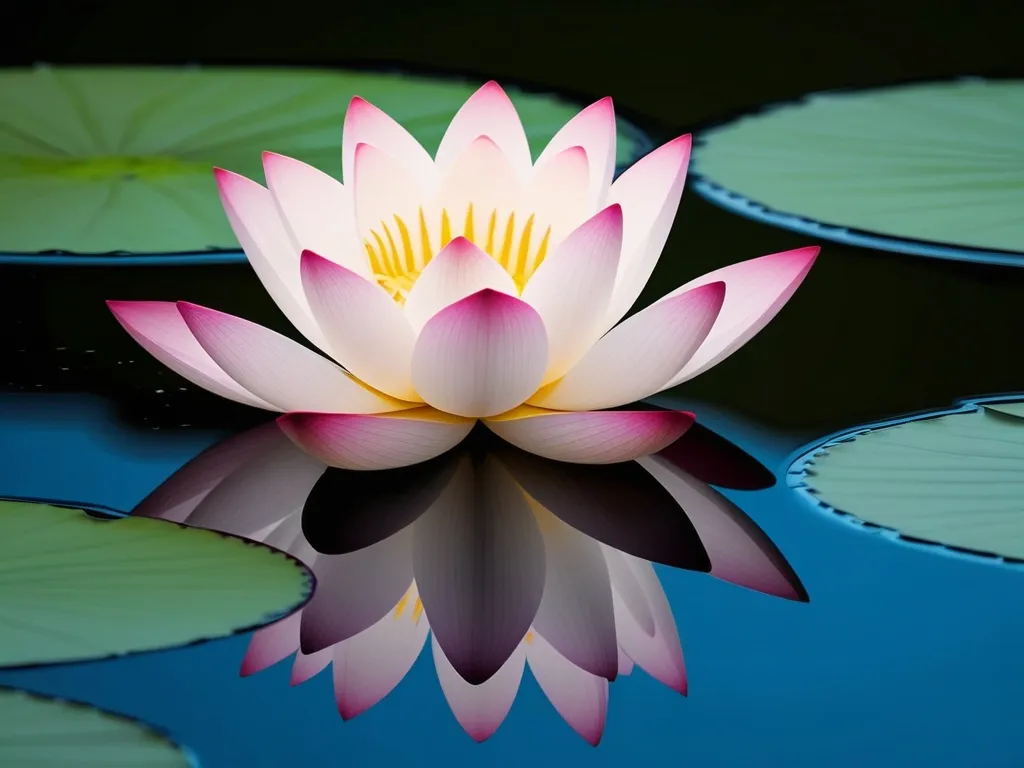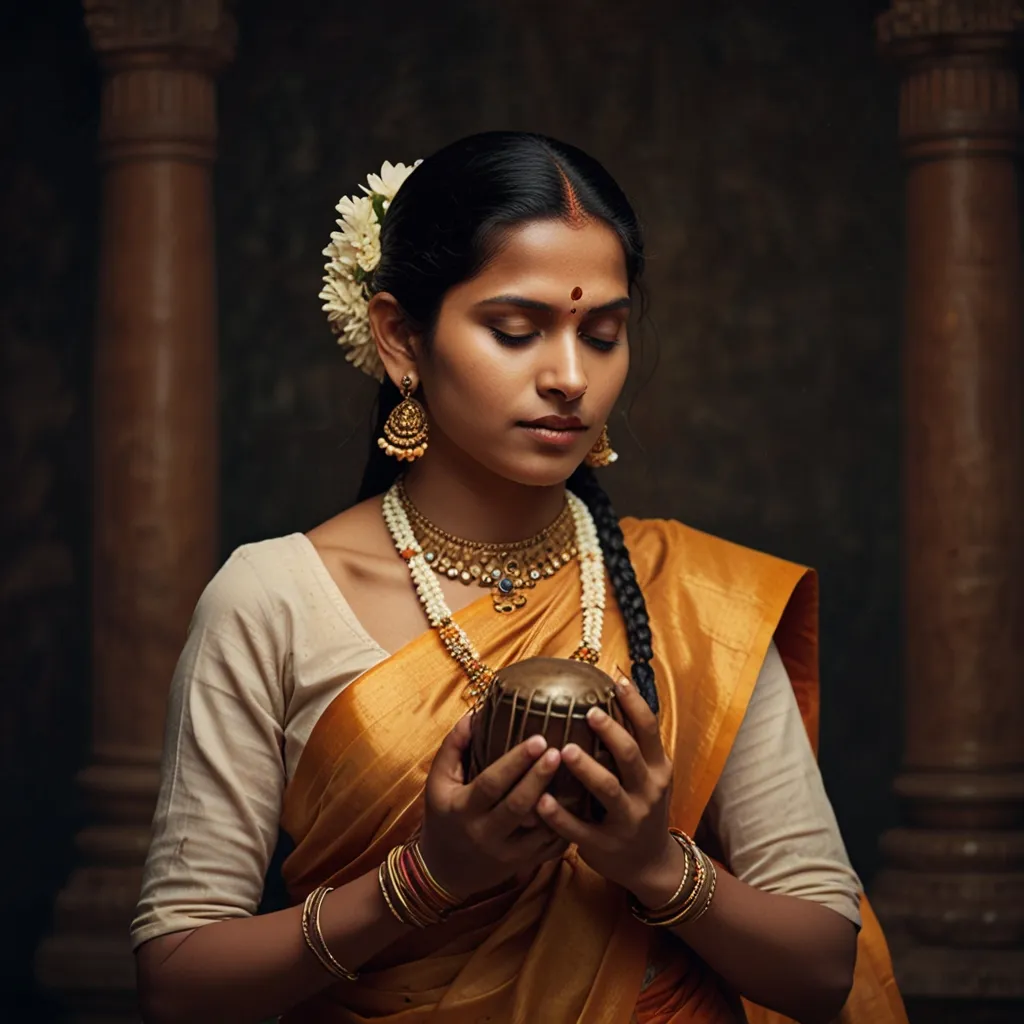The Yajurveda, one of the four sacred texts of Hinduism, is like a holy manual brimming with instructions for rituals and spiritual wisdom. It’s often called the “book of rituals,” thanks to its detailed guidelines on performing sacrifices and offerings to the gods. This ancient text, dating back to around 1500-1200 BCE, has formed the backbone of Hindu practices and philosophy for thousands of years.
The Yajurveda’s name gives a hint about its purpose. The word “Yajur” translates to sacrifice, and “Veda” means knowledge. So, Yajurveda essentially means the knowledge related to sacrifices. It was initially passed down orally before being written by Sage Veda Vyasa. Imagine the scene: granddads telling their grandkids these sacred hymns around a fire, maintaining this beautiful oral tradition.
Dive deeper into the Yajurveda, and you’ll find the Samhitas at its core. These are collections of hymns, mantras, and chants, essential during Vedic times. They split into two main groups: the Black Yajurveda and the White Yajurveda. The Black version has hymns recited during sacrifices and rituals, while the White version explains and interprets these rituals. Picture the Black Yajurveda as the action guide and the White as the user manual explaining what’s happening.
Each group is further divided, focusing on different purposes. Some hymns are for particular gods or goddesses, like Agni (the fire god) or Indra (the king of gods). Others praise natural elements like water or seek blessings, forgiveness, or protection. They weren’t just spiritual texts. They had practical uses too, like healing illnesses or bringing success in various endeavors.
The Yajurveda is a go-to for understanding the ritualistic side of Hinduism. It lays out detailed steps for performing yagnas (fire sacrifices). These offerings are believed to please the gods and bring prosperity to people or communities. Imagine priests uttering specific mantras and performing precise actions during these rituals, like a well-rehearsed spiritual play. For instance, before any ritual involving fire, there’s a hymn dedicated to Agni, or before gearing up for a battle, there’s one for Indra. Each ritual is a way to connect with the divine, seeking blessings for health, wealth, and happiness.
Beyond rituals, the Yajurveda dives into key philosophical concepts central to Hinduism, like karma—the law of cause and effect. It teaches that our actions in this life impact our future rebirths, making it crucial to live a virtuous life for spiritual growth and a better future.
Interestingly, the Yajurveda isn’t just for grand ceremonies. It also offers prayers for everyday situations, like gracing food, morning and night prayers, general blessings, and prayers for community well-being. These hymns are a way for individuals to connect with the divine daily, seeking blessings and protection in all aspects of life.
UNESCO has recognized the tradition of Vedic chanting, including the Yajurveda, as an Intangible Cultural Heritage of Humanity. This tradition involves intricate recitation techniques ensuring the sound of each word remains unchanged. Practitioners learn these techniques from childhood, using tonal accents and speech combinations to preserve these texts over millennia. Imagine kids learning these age-old chants, maintaining a link with spiritual heritage and keeping it alive for future generations.
The Yajurveda has significantly shaped Hindu religious beliefs and practices. It’s still studied and practiced by millions worldwide, offering a deep understanding of ancient Indian culture and contemporary Hindu practices. Its focus on rituals, mantras, and spiritual growth makes it a cornerstone of Hinduism’s rich traditions.
The influence of the Yajurveda goes beyond rituals to everyday life. It guides leading a simple, modest life, emphasizing needs over wants. The text promotes conserving resources and advises steps to eradicate poverty, encouraging a life of austerity, brotherhood, and universal friendship. It’s like a timeless guidebook for living a balanced and ethical life.
The Yajurveda, along with other Vedas, has left a lasting impact on Indian history and culture. It has contributed to developing various artistic, scientific, and philosophical ideas. The Vedic tradition, including the Yajurveda, has influenced Hindu philosophy, shaping the six orthodox schools of thought: Samkhya, Yoga, Nyaya, Vaisheshika, Mimamsa, and Vedanta.
Despite being ancient, the Yajurveda is still relevant today. Its teachings on karma, the importance of rituals, and the pursuit of spiritual growth inspire millions. The text’s emphasis on living a virtuous life and seeking divine blessings through mantras and rituals makes it a timeless guide for spiritual seekers.
In a nutshell, the Yajurveda is a potent tool for connecting with the divine and achieving spiritual growth. Its detailed guidelines for rituals, philosophical teachings, and practical applications make it a vital part of Hinduism. As a text that has been preserved and handed down through generations, the Yajurveda continues to influence modern Hindu practices, offering insights into ancient Indian culture and contemporary spiritual life.






